Key insights
Over 420 manufacturing professionals from the industry, public institutions, startups, scaleups, universities and research and technology organisations gathered in Brussels on 24 and 25 September to dive into the future of the manufacturing sector in Europe.
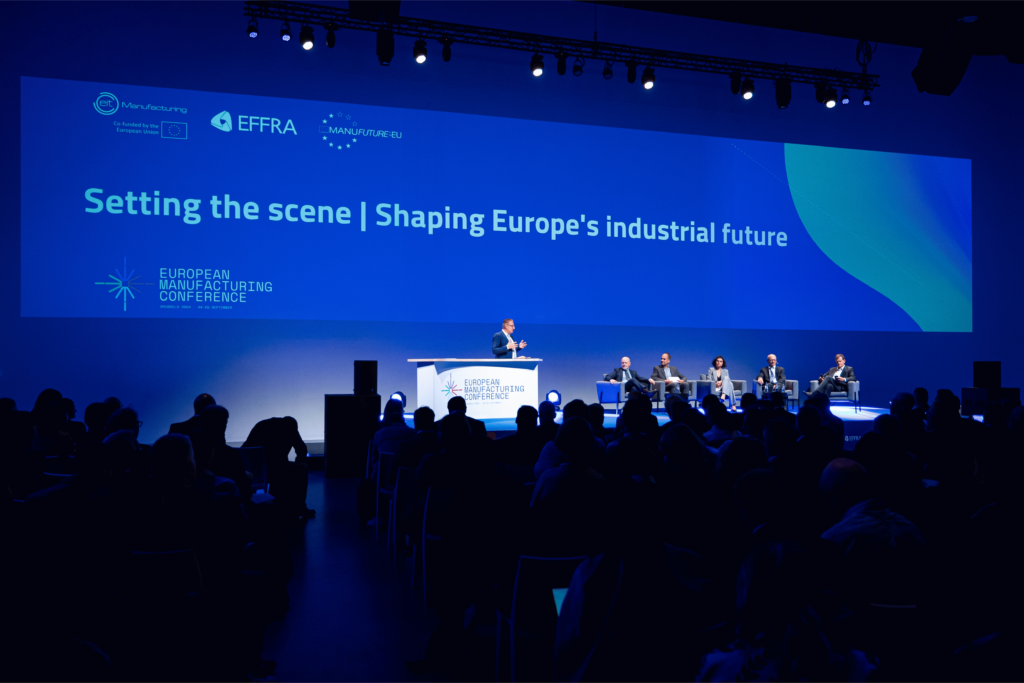
The event kicked off with welcoming remarks from the three organisers – Caroline Viarouge from EIT Manufacturing, Olaf Pannenbäcker from EFFRA and Maurizio Gattiglio from Manufuture ETF (European Technology Platform). This was followed by statements from Maria Cristina Russo Director for Prosperity, DG Research and Innovation of the European Commission.
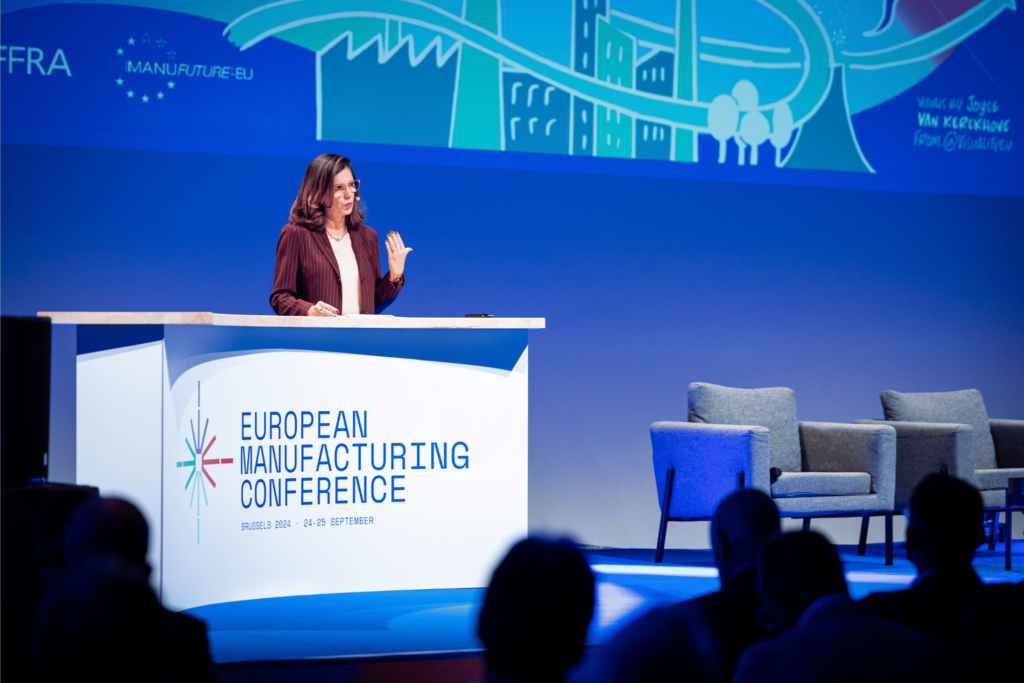
“Europe must reshape its industrial strategy to adapt to evolving and often challenging global dynamics” as she stated in her speech. Normunds Popens, Deputy Director-General, DG Education, Youth, Sport and Culture of the European Commission, added the perspective on the importance of skills and education.
The panel began with a strong emphasis on the Draghi report on competitiveness
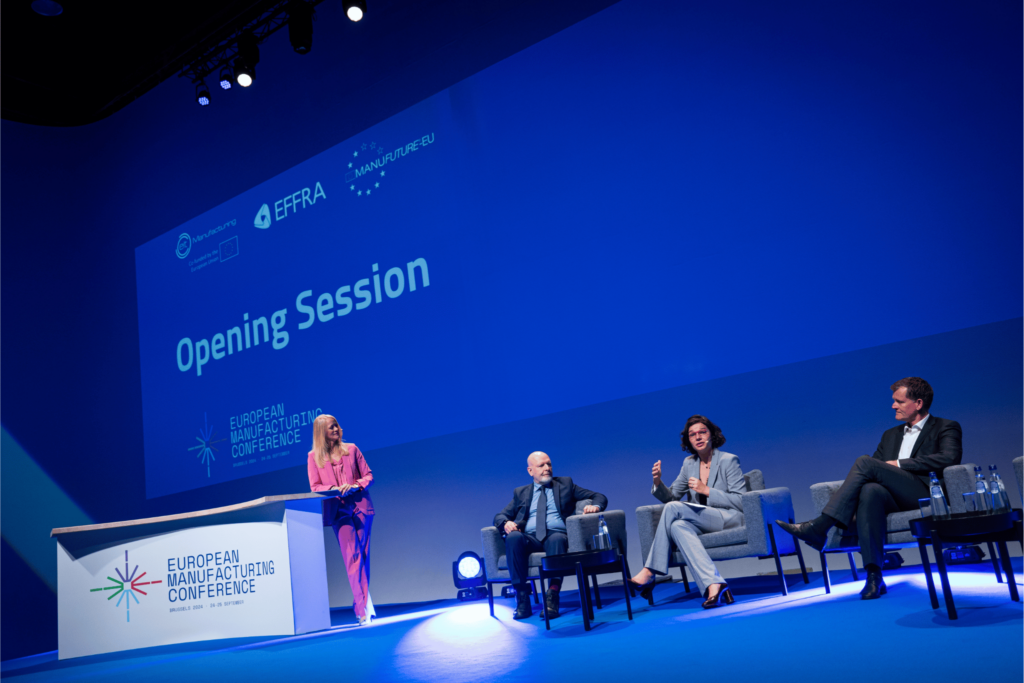
The first panel aimed to ‘set the scene’ for the two-day event. Panelists emphasised the need to accelerate research, innovation and market commercialization, while also acknowledging challenges like heightened global competition, investment gaps and talent shortages. Europe is brimming with great innovation, but there’s an urgent need to bring them to market more quickly. These interconnected challenges, tied to the Draghi report, present exciting opportunities for progress.
In light of this, EIT Manufacturing and EFFRA launched the Innovate Together call, co-financed by the Directorate General for Research and Innovation (DG RTD). This initiative aims to foster collaboration between disruptive entrepreneurs and established industry leaders to develop market-ready solutions that drive innovation, sustainability and competitiveness in the European manufacturing sector.
Once the stage was set, the panels dove deeper into specific topics
Defence and geopolitics: A first for such an event – to discuss the rising significance of defence and geopolitics influencing industry. Panelists acknowledged both physical and cyber threats are escalating, highlighting the need for vigilance in these challenging times.
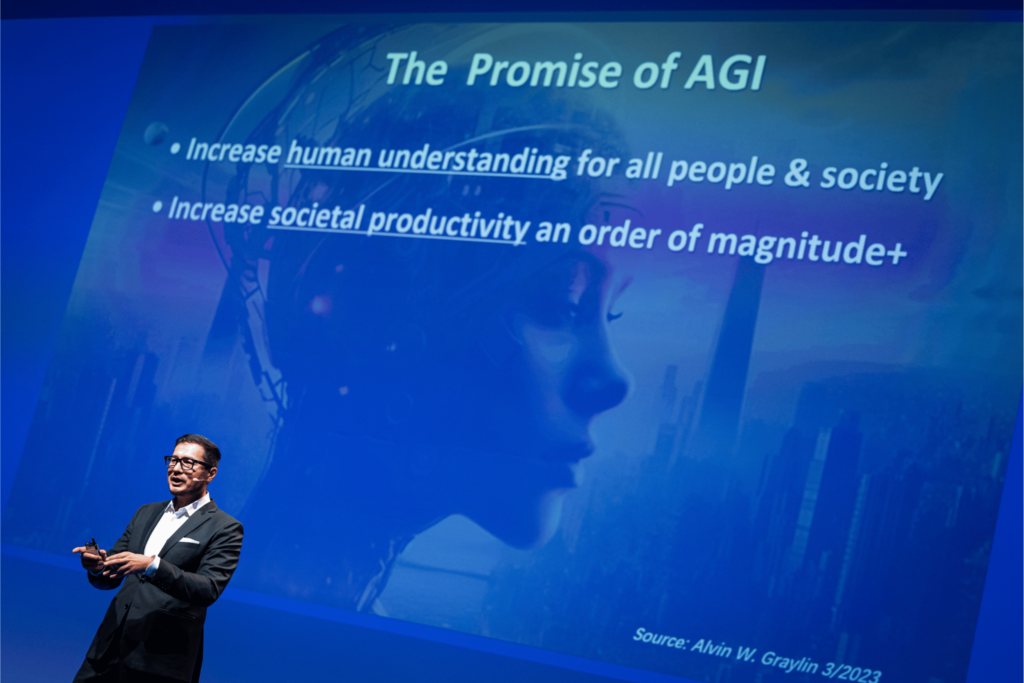
Keynote speech on AI: Keynote speaker Alvin Graylin, bestselling author of Our Next Reality, captivated the audience with a thought-provoking address on AI and Metaverse. He offered a balanced perspective on AI capabilities, explored its applications in the metaverse, discussed its potential future effects on our daily lives—from how we make coffee to how we work (reducing hours while boosting productivity) and its broader implications for society.
Sustainability: A reality check regarding our current progress toward environmental sustainability goals. How far have we come? Have we optimised all the resources and technology we have? José Caldeira from INESC TEC reminded the audience that 80% of the challenges companies face could be addressed with existing technologies. The conversation then shifted to innovative strategies, including reducing material usage and extending product lifespans, highlighting the way forward.
Circularity: A live poll revealed that most attendees believe circularity will be the most important topic in the next five years. While familiar phrases like “reuse, reduce, recycle” echoed throughout the room, a call to action emerged for businesses to rethink manufacturing approaches.
Investment challenges: The fragmented market and excessive regulation in Europe hinder investment opportunities. Numerous prototypes struggle to reach the market due to funding gaps, leaving innovative stranded. A collective urgency arose for stronger collaboration between public and private sectors, venture capital, and patenting efforts.
New technologies: The discussion highlighted the importance of understanding where and how to effectively integrate AI into manufacturing processes. Thibaud Jongen, Founder of Generative Robotics, provided an example of integrating generative AI capabilities, word modeling, sensor input, and multi-dimensional interactions with advanced explicit reasoning to create robots that understand tasks. These robots can operate autonomously, rather than just automated. Generative AI enables the development of robust autonomous robots that can make decisions and provide support to human workforce in manufacturing industries.
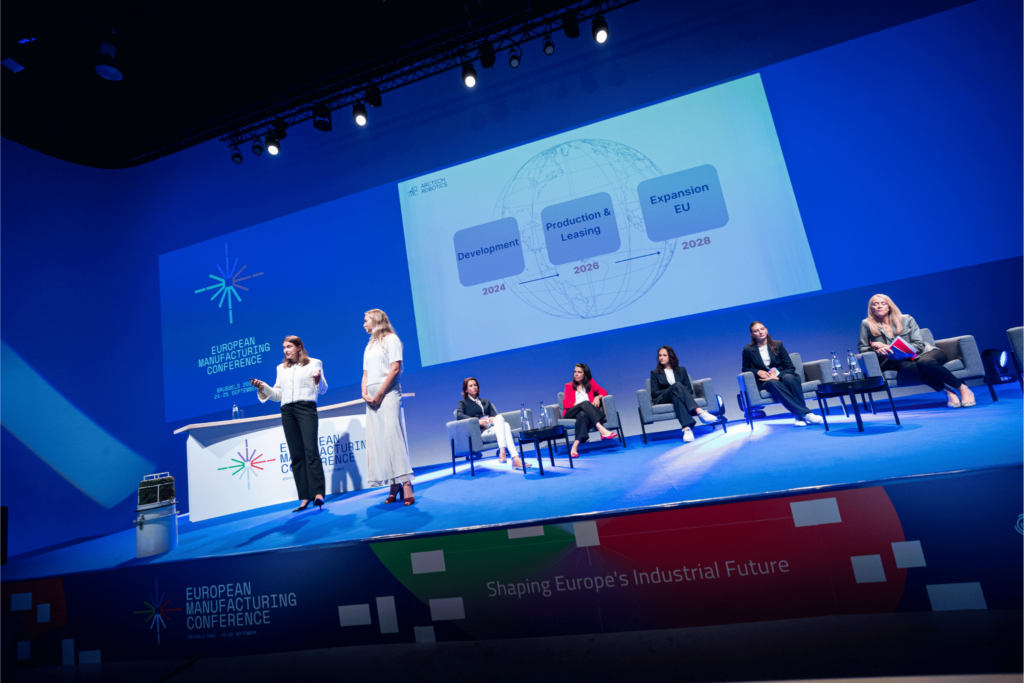
Diverse talents and engaged youth: The last two panels of the conference centered on diversity and youth, highlighting how bringing diverse perspectives into the workplace can enhance productivity and foster innovation. Additionally, diversity is believed to play a crucial role in attracting talent—a challenge that the manufacturing sector has faced for years.
As the panels concluded, a presentation from Junior Achievement Europe green manufacturing competition winners left the audience buzzing with optimism about the potential of the next generation of innovators. Their innovative ideas are seen as crucial for advancing the industry.
A bright outlook for manufacturing despite challenges
Despite looming challenges, the discussions over the two days highlighted Europe’s strengths: a stable regulatory environment, strong global presence and dynamic collaborations among industry players, startups and research organisations.
Europe’s expertise in advanced technologies—spanning connectivity, biotechnology, quantum computing, autonomous robotics, and AI services—holds great potential when backed by robust policies and investments in research and innovation. Such a holistic approach will enhance the region’s competitiveness, fostering an innovative and resilient manufacturing landscape.
Until the next edition of EMC!
All photos by: Xavier Leujene

